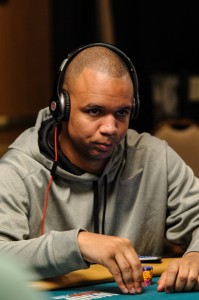 I wrote a post back in May of 2013 which questioned the action of poker player Phil Ivey. In that blog I examined what Ivey did while playing cards at a casino in London and whether it amounted to cheating. I’ll recap so you don’t have to read the entire first post.
I wrote a post back in May of 2013 which questioned the action of poker player Phil Ivey. In that blog I examined what Ivey did while playing cards at a casino in London and whether it amounted to cheating. I’ll recap so you don’t have to read the entire first post.
Ivey and a friend were playing a game called Punto Banco at the Crockfords casino in London and noted a misprint on the cards. Ivey and his friend then exploited this misprint to win about $12.4 million. This sort of behavior is called edge sorting. The basic definition is using flaws within the system to win at the game. Ivey never disputed what he did to win the money. He never claimed it was simply his considerable acumen with cards that allowed him to win. During the trial he told the truth about what he and his friend did.
In my original blog I came to the conclusion that what Ivey did was certainly unethical but did not amount to cheating. I felt that if someone in a card game in which I was playing used the same technique I would think they behaved as a poor sportsman. I probably wouldn’t play cards with them again and I’d have to consider their behavior in any future encounters. Still I did not think any cheating occurred. He simply took advantage of a weakness.
The case has now run its course and the judge ruled against Ivey. The judge decided that what Ivey did was actually cheating. That the casino was right to withhold his winnings and he would not be able to collect them. The judge went out of his way to mention that Ivey was straight-forward and truthful in his testimony. Ivey reacted by saying he still doesn’t think he cheated, and I agree, but that the judge has made a decision and that is that.
I disagree with the judge on this one but I think Ivey is taking the high-road and that’s a good thing. He plead his case honestly and fairly and lost. That happens and I’m sure Ivey knows it far better than me.
I’m still of the opinion that edge sorting is unethical and not cheating.
What I find most interesting about this ruling, which occurred in England and therefore does not affect U.S. casinos, is the repercussions on other situations. A player who notes any flaw in the system might be denied his or her winnings. I think it can be fairly argued that if I notice a person has a tell, that’s gambler talk for a physical reaction that gives away the contents of the player’s hand, then I’m potentially engaged in cheating and might legally be deprived of my winnings. If I’m aware you twitch your nose when you are bluffing and win a lot of money during a poker game is it possible that you can legally not pay me?
I understand there is a difference between a misprint on a card and a physical tell but I’m not convinced the two are that different legally.
As an example let’s imagine a fairly big poker game with a table of nine players. I note that one player has a tell. I use that tell to anticipate that player’s moves which gives me an advantage over every other player in the game. It helps me not only against that player but I can influence that player, through my own betting behavior, to change the way other players bet. I can lead the telling player into a bluff when I have a poor hand to drive out players with good hands.
It’s my opinion this behavior would qualify as a skilled playing, not cheating.
Is such behavior the equivalent to noticing a misprint on a card and using it to one’s advantage?
In summary.
- Noting misprint and not telling anyone: Skilled playing; unethical but not cheating
- Causing cards to be misprinted and using that information to win: Cheating
- Noting a tell and using it to advantage: Skilled playing.
What do you think? Was the judge right? Did Ivey cheat?
Tom Liberman
Sword and Sorcery Fantasy with a Libertarian Edge
Purchase The Broken Throne today!
See All my Books